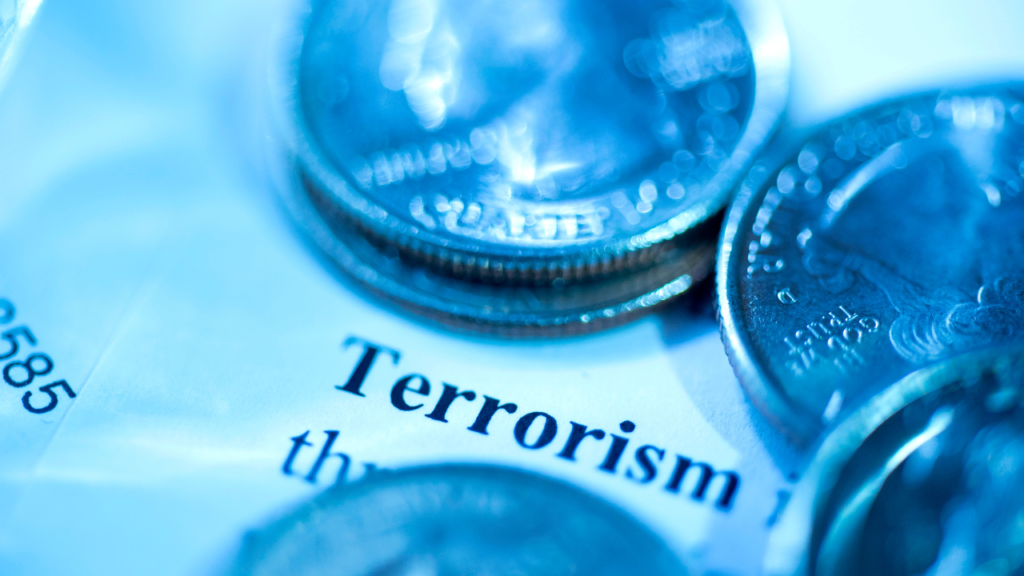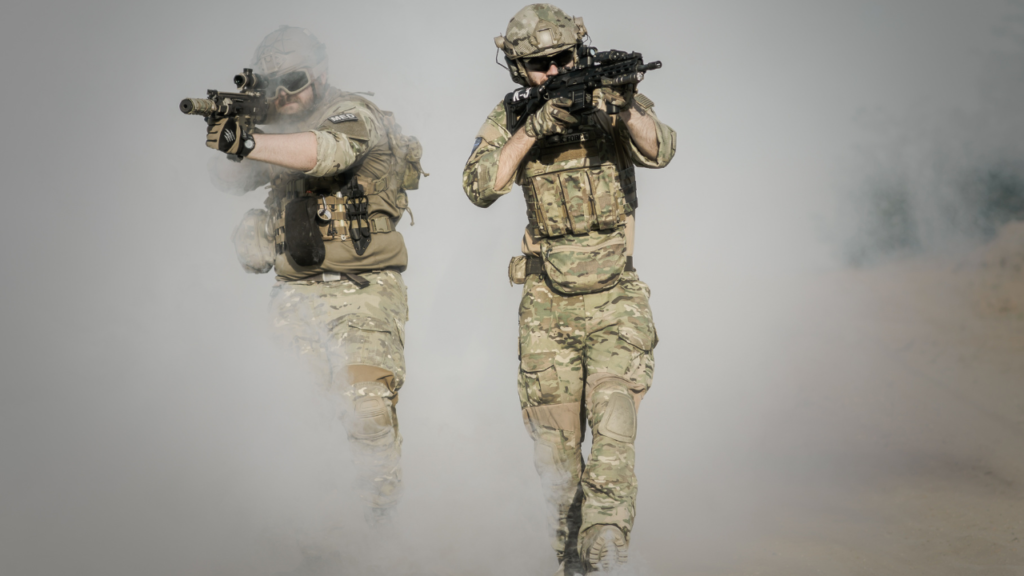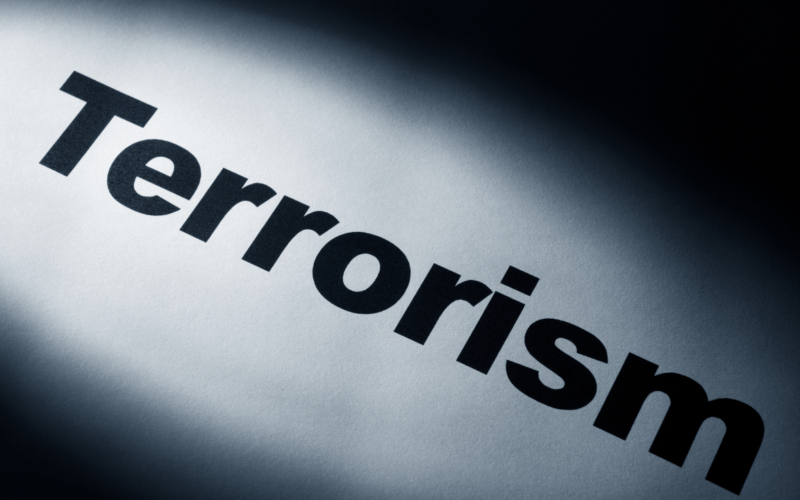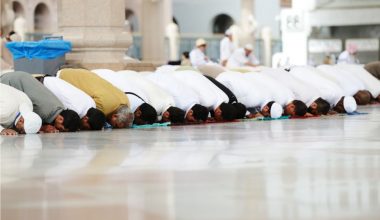PREFACE
The shadowy terrorist group SSP, even though banned by Musharraf in 2002, remains at the heart of Pakistan’s national security crisis. Over the years, SSP has integrated itself into a central position in a ring of terror on Pakistan’s national territory, which includes SSP, LeJ, TTP, Al Qaeda, Jundullah, Jaish Mohammad and some smaller groups. Pakistan’s missteps have compounded the situation with SSP, TTP, and LeJ and have undermined the physical security of the nation’s own citizens. Additionally, the problem has taken on global dimensions in an increasingly inter-linked world haunted by international Islamic terrorism. The mention of Pakistan anywhere in the world these days increasingly stirs up images of extremism, religious violence, and terrorism. Indeed, these ascriptions, especially the perennial apostatizing terrorism, serve as a seam that interminably threatens to tear at the core of Pakistan’s stability and unity as a nation. Since the more violent phase of their campaign erupted a few years ago, SSP, TTP, and LeJ have instilled widespread insecurity across Pakistan and have increased tensions among religious and ethnic groups in the country. These apostatizing extremists have been responsible for a series of deadly attacks on strategic governmental agencies, religious centres, shrines, Shia neighbourhoods, Christian quarters, and innocent individuals. They have also attacked key Muslim clerics, politicians, and religious minorities. But in more recent times, their attacks have been directed mostly at Shias – a clear indication not only of Al Qaeda’s strategic re-direction and focus but also of their desire to implement their own variant of sharia law by inflaming religious animosities and violence in Pakistan. Thus, apart from the security forces, Shias are now their main target in Pakistan. Up to the 3rd of March, this year has already seen murder of over 350 Shias in Pakistan. Apart from a number of targeted killings, the main assaults include four major bomb blasts in the Shia neighbourhoods – two in Quetta, one in Karachi, and one in Hangu. Among them, these four bombings have accounted for about 300 deaths – marking a worrisome worsening of what is fast becoming a national epidemic. Another major incident included shooting of 22 members of security forces by TTP in January. Given the heterogeneous nature of Pakistan and the dismal socioeconomic conditions in which many Pakistanis live, this essay contends that SSP, TTP, and LeJ terrorism is calamitous for Pakistan’s fragile unity and, indeed, has a catastrophic net tendency of further polarising Pakistanis along religious and ethnic lines.
THE RISE OF SSP, TTP, LEJ, AND THEIR CHANGING PATTERN OF ATTACKS

SSP has been targeting and campaigning against Shias since its birth in 1985. SSP, TTP, and LeJ emerged in unison immediately after 9/11 wherein their longstanding local objectives were recast within the narrative framework of global jihad. This nexus represents at once the most dangerous form of the extremist Islamist agenda seeking to impose the contested sharia law in Pakistan. It must be noted that despite the SSP, TTP, and LeJ claim that their call for the implementation of sharia law in Pakistan is countenanced by the Quran, the group does not enjoy popular acceptance among mainstream Muslims who maintain that such an interpretation neither suggests the need for the Islamisation of Pakistan nor affirms the non-acceptance of the constitutional provisions of the state.
Since their radical operational metamorphosis in 2001, SSP, TTP, and LeJ have undergone a number of significant transformations. These groups now work much more in tandem than ever before and model themselves on Al-Qaeda and Taliban in Afghanistan. After conflicts between them and the state came to a head over the application of unadulterated sharia in Swat, their power base centred in Waziristan, a remote and inhospitable terrain on the border with Afghanistan. Goaded by the desire for revenge, these groups waged retaliatory attacks on the residences of local government heads, regional officials, law enforcement agencies, and political leaders. The state was left with no option but to mount an operation in Waziristan. That attack further fanned the embers of the SSP, TTP, and LeJ terrorist campaign against Pakistan security forces and authorities and paved the way for subsequent SSP, TTP, and LeJ terrorist campaigns against Pakistan government authorities. Since then SSP, TTP, and LeJ have waged incessant destructive attacks on the state of Pakistan and Barelvi worship places in general and the Shias of Pakistan in particular. They spread all over Pakistan to regroup and mobilise more support, with Southern Punjab providing them with most important catchment area. This form of mobilisation was one of the first indications of Al-Qaeda’s augmentation of SSP, TTP, and LeJ’s capabilities as it refurbished itself in exile in Pakistan. The head of Al-Qaeda publically offered to train and arm SSP, TTP, and LeJ to wage attacks against infidels in Pakistan. The net outcome was that SSP, TTP, and LeJ cashed in on the political bitterness by widely attacking Shias, killing security personnel, decimating Ahmedis, burning down Christian neighbourhoods, and destroying Sufi shrines.
SSP, TTP, AND LEJ’S ATTACKS ON SHIAS AND BARELVIS AND SELECTIVE ASSAULTS ON DEOBANDIS
SSP’s genesis and existence were founded in hating and opposing Shias, whereas LeJ is just the militant wing of SSP. However, this nexus against Shias became more focused and vitriolic once Al-Qaeda too apostatized Shias and declared them as its principle targets ahead of non-Muslims. Thereafter began all these militant groups’ combined and venomous onslaught on Shias in Pakistan. During the recent years, SSP, TTP, and LeJ have carried out many suicide bomb attacks and target killings of Shias across Pakistan. Their nexus claims that there is no forgiving for Shias’ blasphemy in Islam. The four hugely destructive bomb attacks already this year clearly demonstrate a combined direct focus on Shias. Together, these targeted bombing acts have created not only a tense national environment in which Shias feel and believe that they have come under militant siege but also a growing sense of many observers that Pakistan is poised precariously at the precipice of political and social catastrophe.
Despite attacks on their neighbourhoods and religious gatherings, Shias are not the only targets of SSP, TTP, and LeJ assaults. About 100 people were killed in a ruthless attack on an Ahmedi mosque in Lahore in May 2010, many Christians were killed and over 100 houses were burnt in an attack on them in Gjora in August 2009, and most recently in March 2013 and entire colony of Christians was burnt down and pillaged in Lahore. SSP, TTP, and LeJ adherents privilege a version of Islam that regards as transgressors those who do not abide strictly by the teachings of Allah. The net effect is that even faithful Muslims are often targets of their wrath. For instance, they assassinated almost entire Barelvi leadership in a bomb attack on 11th April 2006 at Nishtar Park Karachi, targeting a congregation marking the celebrations of Holy Prophet’s birthday anniversary. They have targeted and assassinated a number of Barelvi clerics such as Mufti Sarfaraz Naeemi who was murdered in June 2009. They have targeted and bombed a number of Sufi shrines across Pakistan, including some of the most prominent ones like Data Darbar, Sakhi Sarwar, Abdullah Shah Ghazi, Bar Imam etc. They have targeted and killed a number of polio vaccination workers, an overwhelming majority of them being women. They have also not spared moderate ulemas of Deobandi school of thought, such as Maulana Hasan Jan killed by them in September 2007. Maulana Hasan Jan’s assassination was a clear message to other ulema of even salafi leanings that the only credible interpretation of the Quran is the one these militants make and adhere to.
For SSP, TTP, and LeJ, Pakistan’s national and state governments are run by non-believers, as these do not adhere to their interpretation of sharia. As such, Barelvi ulema stand condemned for their cooperation with their Shia counterparts. Both groups are targets because they do not subscribe to SSP, TTP, and LeJ’s ideological commitment to implementing their version of sharia law in Pakistan. Overall, the SSP, TTP, and LeJ attacks have become important symbols of Pakistan’s structural weakness and vulnerability. This is particularly true in the face of the inability of the security agencies to make any meaningful headway in their fight against these militant and terrorist groups, which have actually intensified and extended their activities to entire national territory outside of their operational bases including Tribal Areas and some districts of South Punjab.
EXTRANEOUS AND UNDERLYING FACTORS CONDUCIVE TO SSP, TTP, AND LEJ TERRORISM

Many studies have shown that various underlying factors such as economic disequilibrium, injustice, pervasive poverty and rampant unemployment render many youths willing tools in the hands of extremists. This assertion is corroborated by the fact that, round the world, states most susceptible to religious violence and terrorism are those that are poorer, unstable, and have a chronic history of violence. Hence SSP and its cohorts thrive on popular frustrations with leaders, poor government service delivery, and the deteriorating living conditions of many Pakistanis. SSP, TTP, and LeJ clearly seek to humiliate and undermine the government and to exploit religious differences in order to create chaos and to make Pakistan ungovernable.
These groups also receive financial and ideological sponsorship from many Gulf Arab countries to propagate their brand of Islam. That concern is especially acute with respect to Saudi Arabia, which enlisted in the fight against terrorism only in response to intense pressure from the United States following the Sept. 11 attacks on the World Trade Centre and the Pentagon. Wikileaks cables have given away Saudi Arabia as a cash machine for terrorists. Saudi Arabia has sponsored Taliban movement since at least 1996. It has also channelled funds to SSP, LeT and other extremist groups that have committed to its ideology.
Worst of all, the Saudi monarchy has funded dubious schools and “charities” throughout Pakistan. Those organizations have been hotbeds of anti-Shia and anti-Western indoctrination. The schools, for example, not only indoctrinate students in a virulent and extreme form of Islam, but also teach them to hate other schools of Islam as well as Western values. Graduates of those schools are frequently recruits for SSP and Al-Qaeda terror network as well as other extremist groups.
THE STATE IS RELUCTANT TO ENFORCE ITS OWN LAWS

In response to each of the terror attacks, the Pakistani government promptly vowed to bring all those involved to swift justice. However, given its two-decade-long inability to effectively deal with the SSP threat, the odds are low that—left entirely on its own—the Pakistani government will be able to carry out its promise. Therefore, given the growing serious dimensions of this problem, the application of some calculated outside pressure on the Pakistani government may help in dealing with this major problem. The international community has used its leverage to push the Pakistani government toward better governance in the past and needs to do so again or else risk the growth of another terrorist hotbed within a nuclear state. Pakistani government has to be able to enforce its own laws by prosecuting terrorists and to protect its Shias and other citizens from the extremist groups.
The experience manifests that Pakistani government remains reluctant to enforce its own laws—as evidenced by its failure to prosecute those involved in the recent bomb attacks. Since LeJ’s self-avowed killing of about 90 people in the city of Quetta this past January followed by three other major episodes of such bombings of innocent citizens, none of the group’s significant members, let alone any of its senior leaders and operatives, have been arrested or killed by Pakistani authorities. Published media reports reveal that the government possesses information about some of their secret backers, including prominent politicians, elder statesmen, and religious leaders. Yet none of these people have been seriously investigated, let alone indicted.
Worse, the government and the opposition parties alike are seriously considering to enter into ill-advised peace talks with TTP, likely to be mediated by TTP appointees many of whose claim to credibility is derived from their association with the seminaries which are the ideological and personnel fountainheads for the TTP, SSP and other Islamic militant groups in the country. Considering TTP’s jihadist aspirations and its view of the Pakistani government as wholly illegitimate, one is hard pressed to find a rational explanation for the Pakistani government’s participation in such a predictably futile exercise. Not surprisingly, TTP is already playing hard ball and vows to press ahead with its jihad.
The matter of law enforcement is undoubtedly the Pakistani government’s Achilles heel, and remains the most important missing link in all of its attempts to deal with the present crisis. To date, not only has the government negotiated with the extremists on different occasions, but it has also deployed the rather blunt instrument of military crackdown, particularly in the Northwest region of the country. These military crackdowns have been usually more successful in collectively punishing the general population of the area than ferreting out terrorists. Amnesty International and other human rights groups in Pakistan have often been the ones to blow the whistle on the atrocities.
Today everyone agrees that the SSP/TTP crisis is of a vastly more serious and urgent nature than the financial crimes issue of a decade or two ago. The threat posed by the extremists has spiralled into an existential threat for the country. Therefore the international community should take a cue from the past and pressure the Pakistani government to pass measures to effectively deal with and eliminate the extremist and terrorist groups like LeJ and others. The effective starting point in the enforcement of Pakistan’s laws is to promptly indict all those already on record for spewing hate, apostatizing, and owning up to the killings. The country’s law provides long prison terms and death sentences for offenders, who include the foot soldiers of terrorism as well as any aiders and abettors. And with respect to those who aid and abet terror, the investigations should faithfully follow the leads and cues obtained from the interrogations of those under arrest with the ultimate goal of exposing and indicting the secret backers of SSP, LeJ, and TTP whether within or outside the government. The indictment and conviction of less than everyone involved will certainly not be enough.
At the same time, it must be admitted that the scheme for prosecuting offenders under the current anti-terror laws is rather flawed and needs serious overhaul. At the moment, prosecutions under the law take place only at the normal courts, which are notoriously tardy and already overburdened courts that labour under considerable resource constraints. The matter is made worse by the predictable inclinations of lawyers to gum up the system through undue reliance on technicalities and sundry dilatory tactics which terribly undermine the compelling national objectives of the anti-terror law itself. The final nail in the coffin is that the judges adjudicating upon such cases feel threatened by the militants and –as some of the past incidents show- are not sufficiently protected by the government.
As a remedy, the government should expeditiously seek an amendment of the law to create a “special court” system with highly streamlined procedures, including definite timelines and expedited appeal provisions, which would reflect the need for swift prosecutions under the law.
POLICY ATTEMPTS AT ADDRESSING THE MENACE OF SSP, TTP, AND LEJ TERRORISM
Pakistani government has in turns used force and persuasion to respond to the SSP, TTP, and LeJ challenge. However, it is clear that national security issues and misplaced notions such as Strategic Depth have strong military-political overlay that continue to compromise the government’s ability to respond effectively. Aside from the reputed support given to the groups by some prominent politicians, the failure to directly address the root causes of the crisis bodes ill for any immediate solution. Reliance on army’s capabilities for such a response demonstrates state weakness and largely seems to exacerbate SSP, TTP, and LeJ terrorism. The Pakistan government had also tried to initiate a modus vivendi with SSP, TTP, and LeJ. But such processes have floundered. Similarly, any future dialogue with SSP, TTP, and LeJ will be much of a herculean task taking into cognizance the fact that some of SSP, TTP, and LeJ’s stated demands are practically unachievable in a democratic state like Pakistan.

Clearly, to ensure sustainable peace and development, the Pakistan government must meaningfully address the range of social, political, and economic challenges facing the country. This will require an urgent focus on improving its governance capacity at all levels through a recourse to the rule of law, interfaith dialogue, credible justice system, reduction of unemployment, creation of useful career opportunities for the youth, provision of social services such as quality health care, quality schools with modern curricula and other social amenities such as roads, potable water and electricity.
CONCLUSION
The essay has attempted to demonstrate the changing dynamics and context of SSP, TTP, and LeJ terrorism, especially its selective onslaught on Shias and Barelvis and the state. It has also highlighted the emergence of SSP, TTP, and LeJ and their strengthening within the post-9/11 environment when the debate to implement sharia law saturated and radicalised the northern landscape in Pakistan. The essay also links people’s socioeconomic and political grievances not only to the operational success of SSP, TTP, and LeJ but also to the continuing inability of the Pakistan state to deal with the challenge to ensure national stability, unity and prosperity effectively. In the absence of a wholehearted commitment by the government to extinguish the SSP, TTP, and LeJ menace, innocent citizens continue to be slaughtered on an almost daily basis. This essay concludes that to see the Pakistani people plunged into a state of helplessness and despair, is a harrowing cautionary tale, a truly tragic daily reminder to never take any political or religious situation for granted, and to never underestimate the focused energy and gravitas of SSP, TTP, and LeJ whose instinctive recourse to the rule of fear and terror as a weapon of disintegrating the Pakistan state liquidates not just the Shias and moderate Sunnis but also paralyses the state and is sowing the seeds of eventual crumbling of the state and the society that will enable them to take control.







